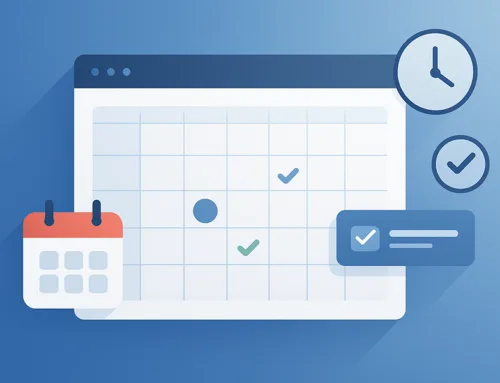If you want to have a successful real estate business, you need to have a successful website. A strong online presence is simply a must. A well-designed real estate website can be a powerful tool to attract potential clients, share your brand message, nurture potential clients, and ultimately drive sales. This text will be your pocket guide to designing a successful real estate website.
The Importance of a Real Estate Website
First, every real estate business must have a great website. Today, most people look for information products and services directly online. This trend is also present in the real estate industry, where potential buyers and renters start searching for property online. In fact, 44 % of people who want to buy property start their search online. For that purpose, in the real estate business, you have a website that will serve several goals:
Visibility and Reach
A website can make you accessible to a global audience and will expand your reach far beyond local markets
A hub for information
The website will provide detailed information about property market trends and the services you offer
Lead Generation
An effective website can bring lots of leads through forms of calls to action and engagement in content
Brand awareness
A professional website will improve your Brand’s credibility and untrustworthiness and help build an online brand with a reputation.
Essential Features of a Real Estate Website
Several very important features of a real estate website can make or break the real estate business online. Let’s see which they are.
MLS Integration
Multiple listing service integration lets your website display up-to-date property listings. Without this feature, visitors would not be able to access a database of properties when searching for their new home or rental.
Advanced Search Functionality
By implementing an advanced search feature, you will provide an extraordinary user experience to your visitors and allow them to filter information based on various criteria such as location, price, property type, number of bedrooms, and amenities. In this way, website visitors will find exactly what they are looking for quickly and easily.
High-Quality Images and Virtual Tours
Visuals are very important in the real estate business. High-resolution and professional images, as well as virtual tours, are key for showcasing properties. They will give potential buyers a realistic view of the property and help them envision their life there, convincing them to take the next step and move closer to making a decision to purchase or rent.
Detailed Property Descriptions
Convincing copy urges potential buyers or renters to take the next step. So, each property listing should include a detailed description, including information like size, layout, features, and nearby amenities. The more information you provide, the better informed the visitors will be.
User-Friendly Design
Every website needs a user-friendly design to navigate easily across the website and find the answers. That is why critical pages like property listings, contact information, and About Us should be directly accessible from the navigation bar on the home page.
Responsive Design
Today, people are using different kinds of devices to access the net and look for information. For that purpose, you need to make sure the design is responsive and can be easily accessed from mobile or other smart devices. This ability improves user experience and accessibility and extends the chances of conversion.
Contact and Communication Tools
You should ensure that your website has tools to facilitate communication between potential buyers and visitors, so features like contact forms, live chat, and indirect messaging are super helpful.
Testimonials and Reviews
To be popular on search engines, you must show that previous clients have left testimonials for your services. So testimonials and positive reviews build trust and confidence with new visitors.
More Advanced Features to Further Improve the Real Estate Website
A part of the essential elements of real estate websites is that they should have several advanced features that will make them stand out. They are:
- Interactive maps, which allow users to see the location of properties and explore the neighborhood
- A mortgage calculator helps potential buyers calculate their monthly payments and determine what they can afford.
- Blog and market insights, a section that can position you as the expert in the real estate market and help you build authority in the industry, allows clients to book viewing directly through your website.
- Appointment scheduling tool which allows clients to book viewings directly through the website.
- Property comparisons which allow users to compare multiple properties side by side.
How Property Managers Can Help
Property managers are responsible for maintaining the quality and functionality of the real estate websites because they can contribute in the following ways:
- They can ensure that the website content is always up to date by adding new listings, updating sole properties, and ensuring all information is correct.
- They can ensure all listings meet property image descriptions and virtual tour standards.
- They can oversee SEO strategies to improve the website’s visibility on search engines and make online marketing campaigns.
- They can manage life chat, respond to inquiries promptly, and improve customer service.
- They can analyze website traffic and user behavior to identify areas for improvement.
Conclusion
Designing a successful real estate website requires more than adding attractive visuals. Instead, it requires a whole strategy that includes essential, advanced, and regular maintenance. Property managers and their expertise can improve the website’s effectiveness to bring more leads and conversions.





